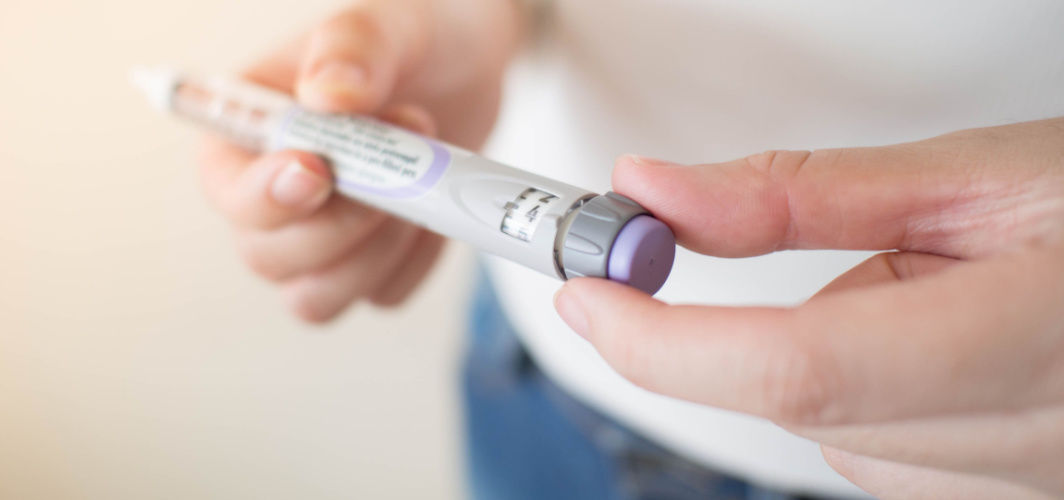Diabetes Management
Cataract Surgery with Diabetes: Considerations and Tips for Recovery
2 min read
By Apollo 24|7, Published on - 26 April 2024, Updated on - 29 April 2024
Share this article
0
0 like
.jpg?tr=q-80)
Managing diabetes while dealing with other ailments or undergoing surgical procedures, like cataract surgery, demands extra care and attention. A diabetic who is scheduled for cataract surgery requires more preparation than a non-diabetic individual. Therefore, understanding the challenges regarding diabetes and cataract surgery is crucial for those embarking on this journey.
Assessing the Situation Before Surgery
Diabetic individuals may encounter difficulties during cataract surgery due to the presence of conditions like Diabetic Retinopathy (DR). DR develops when high blood sugar levels cause damage to the blood vessels in the retina. If this condition is not managed effectively, it can lead to vision loss. Therefore, conducting thorough eye examinations and assessing the retina's health is a prerequisite for diabetic individuals planning cataract surgery. Maintaining optimal blood sugar levels and coordinating with specialists such as endocrinologists or physicians can go a long way in ensuring a successful outcome.
Preparation for Surgery
In the lead-up to the surgery, there are several things you can do to ensure optimal results:
- Manage Blood Glucose: Keep your blood sugar levels under control. This is crucial as high glucose levels can cause complications.
- Disclose Medication: If you take metformin or SGLT2 inhibitors, inform your doctor.
- Follow Instructions: Adhere to the directives given by your eye surgeon.
- Assess Health Status: Discuss any diabetes-related issues such as heart or kidney problems with your doctor.
- Avoid Certain Activities: Stop taking aspirin or anti-clotting drugs and refrain from using makeup or lotions on the face before surgery.
Post-Surgery Care
After the surgery, don't let your guard down. It is important to follow the best practices:
- Monitor Blood Sugar: Regularly check your blood sugar levels, particularly if you are facing challenges like stress or reduced physical activity.
- Be Patient with Healing: Individuals with diabetes may require a longer healing period, so follow up diligently with your doctor.
- Be Aware of Infections: Look out for signs of infection and take preventive measures.
The Importance of Follow-ups
Regular follow-up appointments are necessary to monitor DR progression and tackle any new issues promptly. Changes in diabetes medication may be needed post-surgery to ensure optimal diabetes management and eye health.
While diabetic patients may face unique challenges during cataract surgery, a thorough understanding of the situation, effective coordination with doctors and empowered decision-making can significantly aid in achieving a successful outcome.
Diabetes Management
Consult Top Diabetologists
View AllLeave Comment
Recommended for you

Diabetes Management
What Is Insulin? Answering The Top 5 Frequently Asked Questions
The different types of insulin available for diabetes management are rapid-acting insulin which works quickly and short-acting insulin which is taken before meals to control blood sugar levels. Intermediate-acting insulin has a prolonged effect and is taken twice a day for basal insulin coverage during fasting periods while long-acting insulin provides a steady release of basal insulin for 24 hours to maintain stable blood sugar levels, and pre-mixed insulin that combines short-acting and intermediate-acting insulin.

Diabetes Management
Managing Diabetic Neuropathy: Tips For Relieving Pain and Discomfort
While there's no cure, symptom management for relieving pain and discomfort is crucial for managing diabetic neuropathy. Tips include controlling blood sugar levels through a healthy lifestyle, medications prescribed by your doctor, regular exercise, and proper foot care. Pain relief options may include prescription pain relievers, antidepressants, and anticonvulsants. Consult a healthcare professional to create a personalised plan for managing diabetic neuropathy, which can help improve your quality of life.
.jpg?tr=q-80)
Diabetes Management
Best Liver Health Tips for Diabetics
Maintaining a healthy liver is paramount, especially for individuals with diabetes. Maintain normal sugar levels, a balanced diet, engage in regular exercise, and keep a check on your health regularly. Remember that your doctor is your ally in this journey towards better health. Enrolling in a comprehensive diabetes management programme like the Apollo Super 6 could be a step in the right direction towards managing your diabetes better and improving overall health.
Subscribe
Sign up for our free Health Library Daily Newsletter
Get doctor-approved health tips, news, and more.
Visual Stories

8 Fruits That are Incredibly Healthy for Diabetes
Tap to continue exploring
Recommended for you

Diabetes Management
What Is Insulin? Answering The Top 5 Frequently Asked Questions
The different types of insulin available for diabetes management are rapid-acting insulin which works quickly and short-acting insulin which is taken before meals to control blood sugar levels. Intermediate-acting insulin has a prolonged effect and is taken twice a day for basal insulin coverage during fasting periods while long-acting insulin provides a steady release of basal insulin for 24 hours to maintain stable blood sugar levels, and pre-mixed insulin that combines short-acting and intermediate-acting insulin.

Diabetes Management
Managing Diabetic Neuropathy: Tips For Relieving Pain and Discomfort
While there's no cure, symptom management for relieving pain and discomfort is crucial for managing diabetic neuropathy. Tips include controlling blood sugar levels through a healthy lifestyle, medications prescribed by your doctor, regular exercise, and proper foot care. Pain relief options may include prescription pain relievers, antidepressants, and anticonvulsants. Consult a healthcare professional to create a personalised plan for managing diabetic neuropathy, which can help improve your quality of life.
.jpg?tr=q-80)
Diabetes Management
Best Liver Health Tips for Diabetics
Maintaining a healthy liver is paramount, especially for individuals with diabetes. Maintain normal sugar levels, a balanced diet, engage in regular exercise, and keep a check on your health regularly. Remember that your doctor is your ally in this journey towards better health. Enrolling in a comprehensive diabetes management programme like the Apollo Super 6 could be a step in the right direction towards managing your diabetes better and improving overall health.


